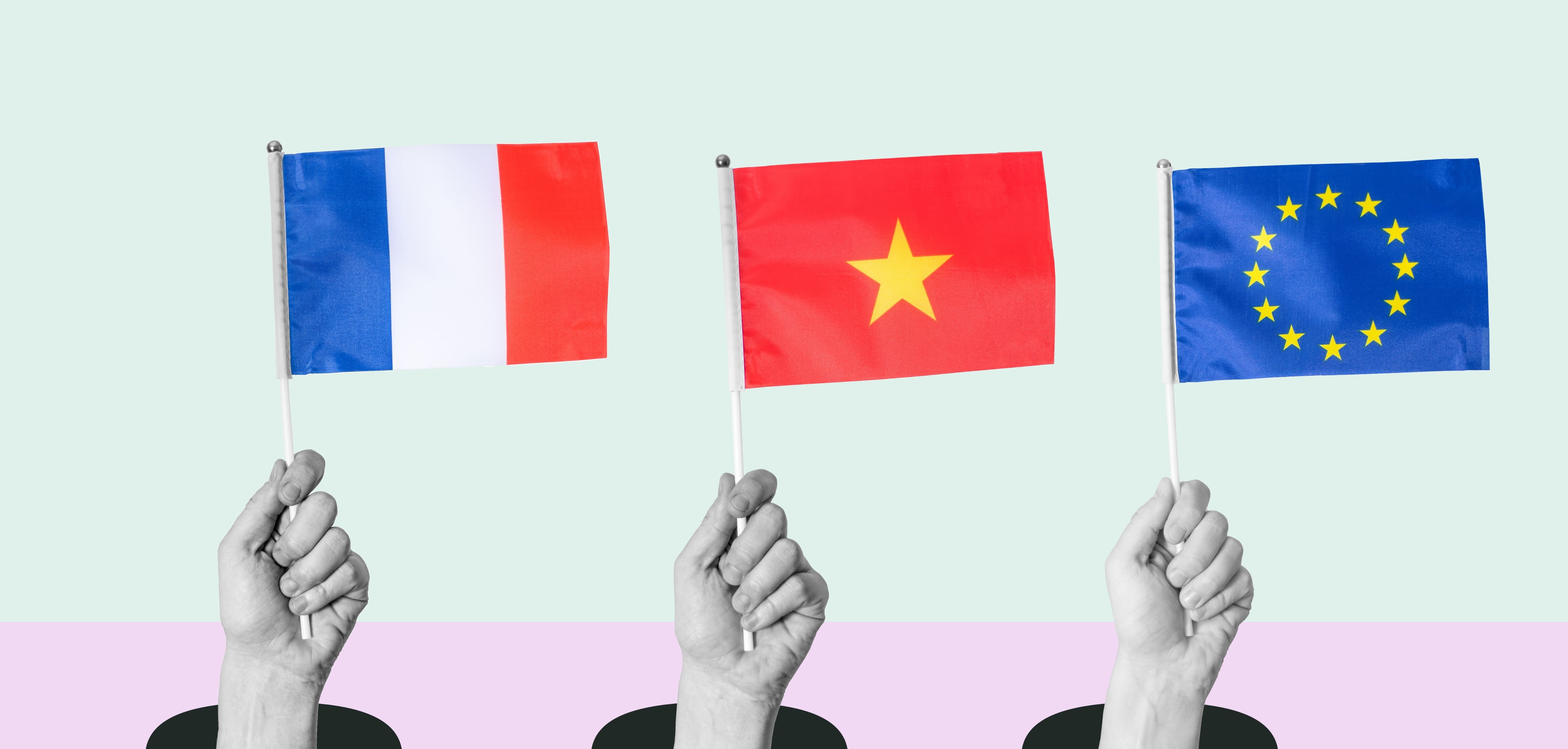Diplomacy
Macron’s Muddled China Outreach

Image Source : Shutterstock
Subscribe to our weekly newsletters for free
If you want to subscribe to World & New World Newsletter, please enter
your e-mail
Diplomacy

Image Source : Shutterstock
First Published in: Apr.13,2023
May.09, 2023
Macron has raised doubts about how serious France is when it comes to managing the negative externalities of China’s rise.
Just when it seemed the European Union was finally achieving strategic coherence as a global geopolitical actor, French President Emmanuel Macron’s recent visit to China has shattered that myth.
The French president and the head of the European Commission, Ursula von der Leyen, headed to China last week, hoping to project a sense of unity vis-à-vis Beijing at a time when global fault lines are sharpening among major powers. The two leaders were aiming to stabilise an increasingly difficult trade relationship with their largest trading partner as well as try to push China into taking a more active role in ending the Ukraine war. Other European leaders, like German Chancellor Olaf Scholz and Spanish Prime Minister Pedro Sánchez, have also tried to engage Chinese leadership in recent months.
But Macron went beyond others as he advocated “strategic autonomy” for Europe as a “third superpower.” Arguing that Europe faces “the great risk” if it “gets caught up in crises that are not ours, which prevents it from building its strategic autonomy”, Macron stirred up instant controversy by suggesting that Europe must reduce its dependency on the U.S. and avoid getting dragged into a confrontation between China and the U.S. over Taiwan. In case of an aggravation of the U.S.-China conflict, Macron advocated, “we [Europe] will not have the time nor the means to finance our own strategic autonomy, and we will become vassals, whereas we could become the third pole [in the world order] if we have a few years to develop this”.
Though von der Leyen went to China at Macron’s invitation, the visit has been overshadowed by Macron’s posturing and Beijing’s apparent glee that it is indeed possible to drive a wedge in transatlantic relations. Macron was given a red carpet welcome in China, and his comments have received widespread coverage. The Chinese Communist Party-run Global Times said the comments were “clearly the result of Macron’s long-term observation and reflection” and represented a path that was “relatively objective, rational, and in line with Europe’s own interests”.
Macron has described the visit as an attempt to “consolidate common approaches” over the war in Ukraine and to force China to acknowledge the costs of its ties with China. But it was hardly evident how this was achieved during and after the visit. Ursula von der Leyen, who has been largely given the cold shoulder in China, has been much more emphatic in her denunciation of the Chinese 12-point plan to end the war in Ukraine and has been underlining the need for “de-risking” in Europe’s trade ties with China.
But Macron’s intervention has led to an intense backlash from all sides. The Europeans are making it evident that there is hardly any widespread support for the French leader’s position. The Inter-Parliamentary Alliance on China said in a statement that Macron’s comments are “severely out of touch” with sentiment across European leadership and that he does not speak for Europe. In particular, the officials of central and eastern Europe have been vocal in their dismay and opposition to Macron’s policy preferences. “Instead of building strategic autonomy from the United States, I propose a strategic partnership with the United States,” Polish Prime Minister Mateusz Morawiecki bluntly put it to his European partners. Those European nations that are on the frontlines of Russian military aggression see the challenges of today in existential terms. They have no time for a French philosophical treatise on statecraft. With France and Germany devoid of any significant military prowess, the reliance of the EU on the U.S. is a strategic imperative. Macron’s ill-timed comments have once again revealed the divergences between the “old” and “new” Europe, even though “old” Europe has not been supportive of Macron’s worldview.
Reactions from the U.S. have been equally scathing. Though the White House has maintained that it is “focused on the terrific collaboration and coordination that we have with France”, the Republicans have latched onto this controversy. The Republican senator Marco Rubio rhetorically asked if, after Macron’s comments, the US should just consider focusing its foreign policy on containing China and leave Europe to handle the war in Ukraine. Mike Gallagher, the Republican chairman of the House of Representatives Select Committee on the Chinese Communist Party, described Macron’s comments as “embarrassing” and “disgraceful.” And of course, former President, Donald Trump was more colourful in his response when he said that Macron “is over with China kissing [Xi’s] ass in China.” Macron’s stance will be concerning to Washington as they are likely to embolden China, even as it reignites the debate about how much America should commit to European security.
Macron has been under siege in France, with his approval ratings down in the dumps and his government narrowly surviving a vote of no confidence last month. So posturing on the global stage on an issue that has had a long pedigree in French politics perhaps makes sense for him politically. Ad he has made controversial comments in the past as well, such as NATO experiencing “brain death” and trying to offer Russian President Vladimir Putin “security guarantees” months after his invasion of Ukraine. But at a time when the West has tried with great difficulty to project a serious China policy and when Chinese aggression, especially against Taiwan, has been explicit, making remarks that end up doing exactly the opposite of what the visit was intended for in the first place betrays a lack of resolve that Beijing will be only too pleased to exploit. And for France’s partners in the Indo-Pacific, Macron has raised doubts about how serious France is when it comes to managing the negative externalities of China’s rise.
First published in :

Harsh V. Pant is Vice President – Studies and Foreign Policy at Observer Research Foundation, India. He is a Professor of International Relations with King's India Institute at King’s College London. Professor Pant's current research is focused on Asian security issues. His most recent books include India and Global Governance: A Rising Power and Its Discontents (Routledge).
Unlock articles by signing up or logging in.
Become a member for unrestricted reading!